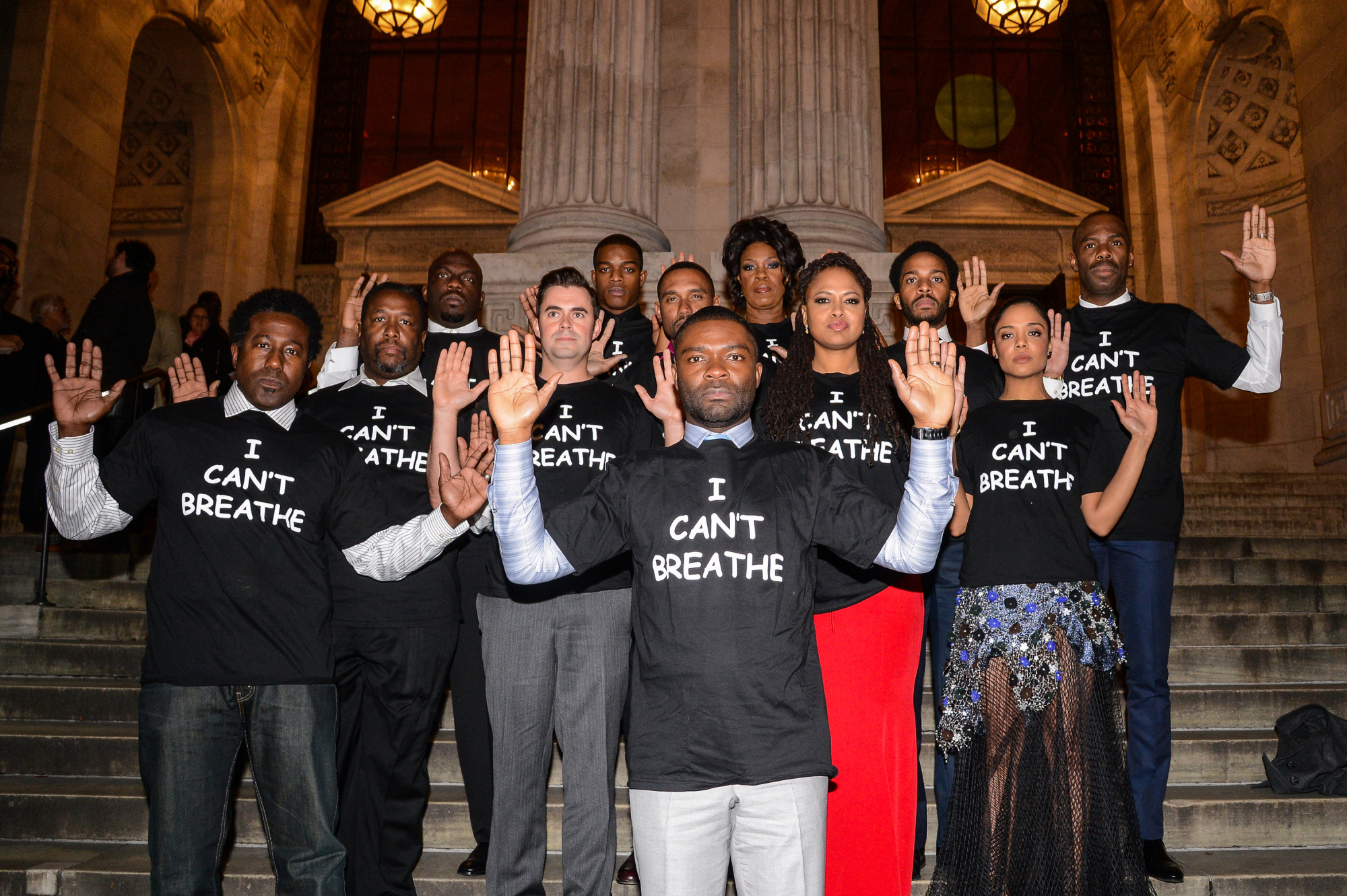I have a lot to say about the movie Selma, but I frankly feel like I’ll need to see it again before I play armchair filmmaker. What I do feel confident talking about is Selma as a storytelling enterprise.
Storytelling is on my mind a lot lately. Mostly because it is a large part of my doctoral research in community planning. I am documenting creation stories of rural black communities founded during the Reconstruction Era in Texas. I don’t just collect stories, but I am really trying to gain insight into how these stories are used in service of community today. Second, I have always thought of myself as a writer first. I feel I have strayed from that a bit since entering graduate school, but story is still central to what I do. I apprise to be an academic and a storyteller.
However, it is problematic to tell any story, even your own, right?
We can all recall moments that may matter to you, but not to anyone else. I’ve found many times, that people I knew in high school or college recall moments I totally forgot. They held onto these moments for decades as the principle representation of “Andrea”. They aren’t wrong, they are just telling a different story, limited by time, perspective, and the face I wished to show the world at any given moment. Some moments reflect who I like to think I am, others, not so much.
To be clear writing a dissertation is not providing a script or even a memoir, but the document will inevitably tell a story of sorts. My own field research includes ethnography, documenting stories, and conducting interviews using methods with historical and anthropological rigor. Follow these methods, document stories a certain way, and people are more likely to believe your stories or more than “just stories.”
However, even history is fundamentally a story, not fact. It is a representation of what moments mean. Did this cause that? Would this have happened if that didn’t happened? Is he responsible for that, or is she really the reason they succeeded? These questions facilitate interpretation and we depict the results or conclusions in the form of some narrative with a beginning, a climax, and resolution. This we forget, particularly true when we talk about film, especially those depicting historical moments and figures.
Being a film director is a bit like being a storyteller. According to something called the film terms glossary , a director is a sort of storyteller. A director is
“the creative artist responsible for complete artistic control of all phases of a film’s production(such as making day-to-day determinations about sound, lighting, action,casting, even editing), for translating/interpreting a script into a film, for guiding the performances of the actors in a particular role and/or scene, and for supervising the cinematography and film crew. The director is usually the single person most responsible for the finished product, although he/she couldn’t make a film without support from many other artists and technicians”
 Currently, Filmmaker Ava DuVernay is viewed as that “single person responsible” for telling the Selma story, and her telling has been nothing short of controversial. Was her depiction accurate? Did she tell the truth? All assume the purpose of film about historical moments or figures is to set the record straight, prove, and teach. If the film has been judged to have achieved any of these deceptively objective goals, then it is a success.
Currently, Filmmaker Ava DuVernay is viewed as that “single person responsible” for telling the Selma story, and her telling has been nothing short of controversial. Was her depiction accurate? Did she tell the truth? All assume the purpose of film about historical moments or figures is to set the record straight, prove, and teach. If the film has been judged to have achieved any of these deceptively objective goals, then it is a success.
However, is that the true purpose of story? Film is always interpretation and a projection of values and meaning rooted in our own memory and limited exposure to elements of the past, material or human. In oral traditions, access to the human (oral history/song) is privileged over the material (maps, legal documents). Still film is a bit of human and material storytelling, right?
Ava DuVernay is one such storyteller. In “Ava DuVernay: ‘Selma’ Is the ‘Vision of a Black Storyteller Undiluted’”, Mychal Denzel Smith interviews the film maker, who explains that
Connective tissue. If nothing else, her film is a connective tissue. It focuses on a moment that is part of a long human rights struggle. Selma, is but one of many battles in a long war against white supremacy. The film is also a subversion of the way western society often uses story.
Ava is a griot. Griots are historians, storytellers. Griot’s have a privilege position in society. Two heavy hitters lent them some of theirs. Oprah and Brad Pitt are producers. These and other backers empowered her, gave agency to be not just a director, but to be a real storyteller. Women told stories with the weight and power of law in Africa, and they still do:
Singing Senator
In the movie, Selma, the role of Black women as nurturers, confidants, and front line soldiers are told. They are especially visible in Selma along with a consciousness of being a link between a noble African past and white supremacist present in 1960s Alabama.
In UPRISING , a modern day griot explains the purpose of the ancient storytelling tradition.
Selma is also reflective of how non-linear African storytelling really is. While even saying it is cyclical is limiting, it is fair to say that the weight, the echoes of the past embedded in story are not just de ja vu or coincidence, they are grounding, meaning making, and foundation for political project. Personal is indeed political. See Ava’s own rootedness in the Selma story:
She speaks of bringing order to the streets where at another time, every movement of black bodies were once controlled, oppressed, and beaten. It provided another layer of meaning to her approach to depicting the march across the Edmund Pettus Bridge that has less to do with accuracy but more with meaning and respecting memory.
Ava is a griot, engaged in diasporic filmmaking, rooted not merely in Africa, but African traditions. Filmmaking in this tradition is not just entertainment or a golden statue, but meaning. In the African Diaspora (not just rooted in the continent but in the struggle in the preservation of those sharing the condition of Blackness), story gives your life meaning. Stories tell you who you are, why you “decided” to come here. It is not proof and it is far from a lie. However, sometimes, no often, we all search for meaning more than truth. Stories and memory reinforce values.
At its best, storytelling is an act of radical representation. Selma succeeds as an unapologetically “Black” depiction of resistance to white supremacy and dare I say civil rights movement history’s love affair with patriarchy. While many would center the depiction of LBJ and decry the omission of other figures and story lines, I argue Ava has told a story that gives black life meaning. It centers Black voice, Black soul. Selma is a reminder of why black life matters, and how our ancestors had to believe black life matters to lay down their very devalued Black bodies for the bodies of those many would never live to see.
Amazingly, Ava DuVernay had no knowledge of Ferguson, Michael Brown or Eric Garner when her film making began. However, after seeing Selma, you’ll believe that she had to know that her depiction of the stories of the past had the potential to order the disordered, encumbered steps of the protesters in the present.
